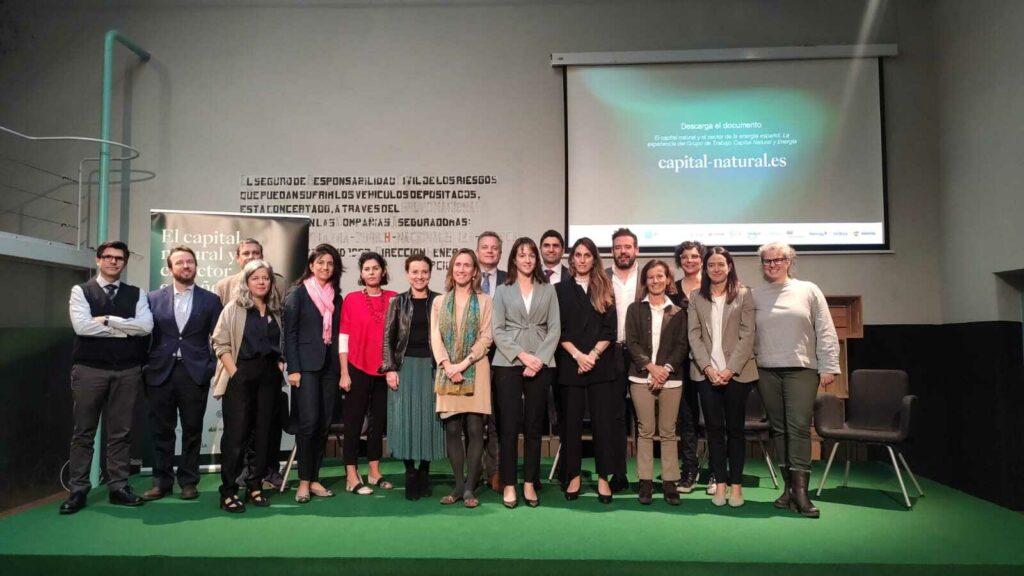Cepsa, EDP Spain, Enagás, Endesa, Iberdrola, Naturgy, Redeia, and Repsol have collaboratively worked for three years, coordinated by Azentúa and Ecoacsa, to reach a consensus on a common terminology, framework, and methodology for the identification and valuation of natural capital, applicable to the global energy industry.
The work developed and the results obtained are especially timely in a context where environmental, geopolitical, social, governance, and technological risks associated with the transition to a net-zero global economy that is positive for nature require companies to provide solutions, reconsider their business models, evaluate and report on their social and environmental impact, and constantly adapt to ensure long-term success, strategic resilience, and value preservation.
As a result of this work, which falls under the Sectoral Groups of the Natural Capital Factory, there are:
- A sectoral document on the energy and natural capital nexus, which includes the specific impacts and dependencies of natural capital in the Spanish energy sector.
- A sectoral matrix and six matrices by technologies outlining the impacts and dependencies on nature of activities related to renewable energy generation; non-renewable energy generation; electricity transport and distribution; operation and management of gas infrastructures and gas transport; exploration and production of oil (and its derivatives) and gas, and refining and petrochemicals.
- A methodology for assessing the degree of relevance that natural capital represents for the various activities and sub-activities encompassed by the businesses of the firms that make up the working group.
The application of the natural capital approach has been the focus of the joint work developed, and the chosen instrument for its application has been the Natural Capital Protocol.

